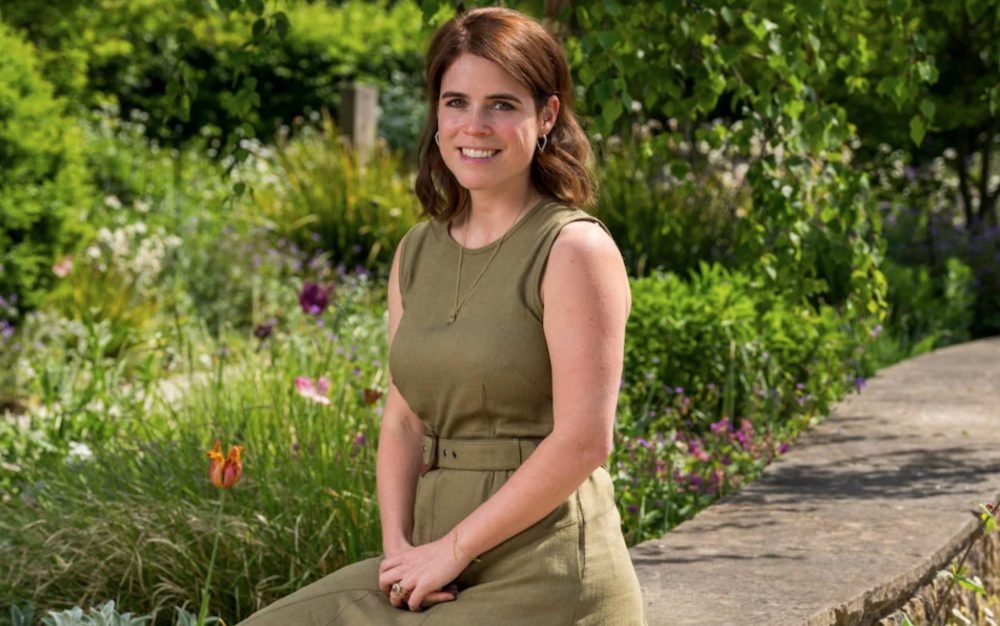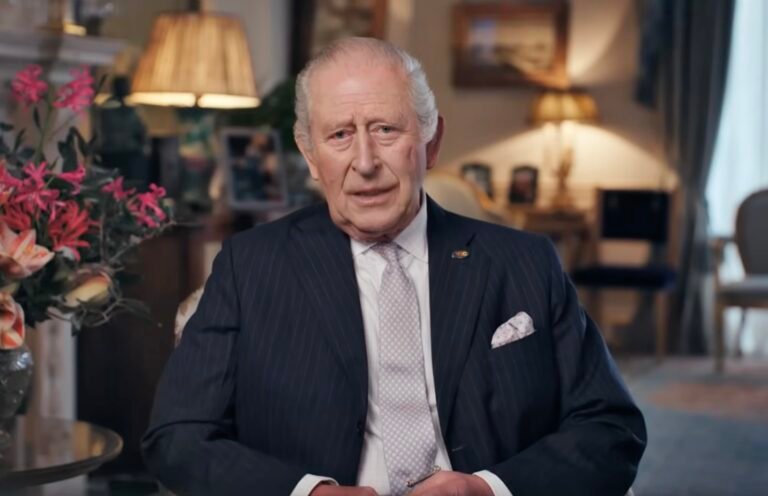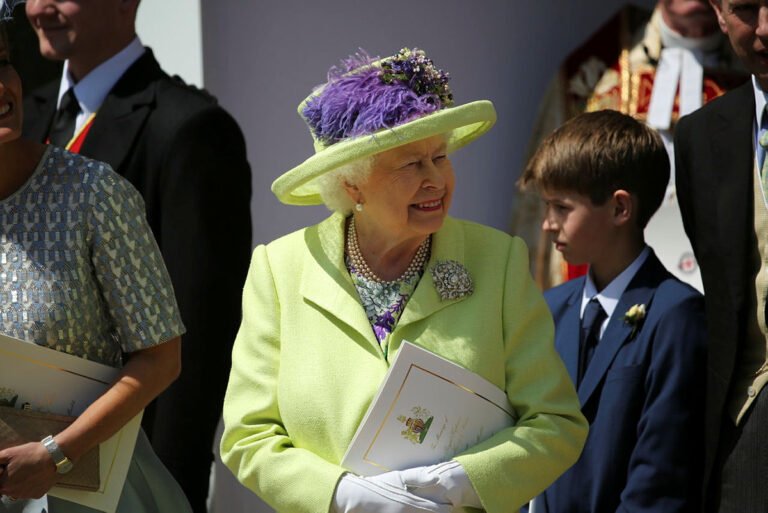In a candid new interview with The Telegraph, Princess Eugenie has spoken movingly about her experience with scoliosis as a child, describing the emotional impact of her diagnosis, the life-changing surgery she underwent at just 12 years old, and how that journey has shaped her sense of self and commitment to helping others.
During a visit to the Duke of Cornwall Spinal Treatment Centre in Salisbury, the 35-year-old royal reflected on the challenges she faced as a young girl after being diagnosed with the spinal condition. The Princess, now a mother of two, underwent an eight-hour operation at the Royal National Orthopaedic Hospital (RNOH) in London to correct a 45-degree curve in her spine. The complex procedure involved inserting two titanium rods and eight screws.
Though medically successful, the recovery was long and emotionally difficult. Eugenie admitted she felt ‘a sense of shame’ about the resulting scar, which runs down her back – a feeling she gradually overcame with the support of her mother, Sarah, Duchess of York.
‘My mum would say, “Don’t be ashamed, it’s a sign of your strength.” She really helped me think it was a cool thing,’ she said.
That message of body positivity and self-acceptance culminated in a powerful public statement when, on her wedding day in 2018, Princess Eugenie chose a backless gown by Peter Pilotto and Christopher de Vos that proudly displayed her scar.

‘I thought it was a great opportunity to show my scar and to be proud of it. It felt like a gift to be able to show people it’s nothing to be ashamed of,’ she said. ‘It’s part of who I am, and I’ve made peace with that. In fact, I’ve come to love it.’
A royal cause rooted in personal experience
Eugenie’s visit to Salisbury was not only personal but purposeful. She was there in her role as patron of Horatio’s Garden – a charity dedicated to creating beautifully designed, accessible gardens in NHS spinal injury centres across the UK. These spaces offer patients undergoing long-term treatment an escape from the hospital environment and a chance to reconnect with nature.
The King’s niece first encountered Horatio’s Garden in 2016 at the Chelsea Flower Show, where she met Dr Olivia Chapple, who had founded the organisation in memory of her son, Horatio. A bright 17-year-old with ambitions to enter medicine, Horatio was tragically killed by a polar bear while on an expedition to the Arctic.
During a work placement at Salisbury District Hospital, he had asked patients what would improve their experience – their overwhelming answer was access to the outdoors. That idea became his legacy.
‘To go through something like that as a family is tragic, but to create something so beautiful out of it is beyond anything you can do for the legacy of a child… I think it’s incredible that Horatio has got something that lives on,’ Eugenie reflected.
The Princess has now visited four of the charity’s gardens and is passionate about supporting its mission to create a garden at every spinal injury centre in the country. She actively uses her art world connections (she works full-time as a director at gallery Hauser & Wirth) to support the charity’s fundraising, including an upcoming auction in support of a new garden in Middlesbrough.

‘She gets it. She’s not just a figurehead; she wants to help in a really meaningful way,’ said Dr Chapple.
The Telegraph interview describes an informal, low-key visit: no press release, no entourage, just Eugenie and her private secretary who snaps photos on a photo for Eugenie to use on social media. She ordered a ‘weak’ Earl Grey tea, no milk, and a slice of orange and almond cake, and spent the day chatting with patients and staff.
One patient, Bob, was visibly moved by the Princess’ visit. With tears in his eyes, he told her how much the garden meant to him: ‘You’re just like us, aren’t you? Every day, you’re just trying to do your best. Which is all we can do.’
Eugenie, who lost her police protection in 2011 and receives no public funding for royal duties, sees these visits as a vital part of her identity and purpose.
‘I’d feel uneasy if I wasn’t doing my charity work, looking after my family and doing my job. I love what I do,’ she said. ‘My mum always taught me that giving back to others is the most important thing in life. Bea and I feel very strongly about this. My grandmother’s sense of duty was also instilled from a young age; we watched my parents, my granny and other family members working very hard.’
Supporting others on their spinal journeys
Eugenie is frequently contacted by parents of children about to undergo spinal surgery and is always willing to offer reassurance.
‘A little voice comes on the phone and they don’t know what questions to ask. I tell them not to feel ashamed – not just of the scar but of the whole experience; bed pans, the lot,’ she said. ‘The people looking after you in this situation are literally angels. I tell them, “Don’t feel nervous about letting them look after you.”’
Looking back on her time at RNOH, where she spent 10 days lying flat on her back and needed a wheelchair for six days, she recalled the feeling of isolation: ‘I had a corner room with two windows looking out over a car park… I remember watching someone waving to my incredible red-haired nurse through the window and having this feeling that I couldn’t reach them.’
Today, thanks to Horatio’s Garden, patients at spinal centres like Salisbury can spend time outdoors among scented plants and under arches of white wisteria – some even from their hospital beds.
‘When you’re in a bed for as long as I was… you can’t really think past how you’re going to get out of bed,’ she said. ‘But now, having worked with Horatio’s Garden, I’ve seen how the garden is so transformative for patients. Nature is so healing; hearing the sound of the birds and running water.’
Instilling values in the next generation of Royals
Eugenie hopes to introduce her children – August, 4, and baby Ernest – to her work early on.
‘I really want them to come to my gallery and to come here on visits like this and see what I do. It must start when they’re young,’ she said, adding that August is already showing an interest in gardening. For his birthday, she gave him seeds and a gardening belt, the first step in what might become a family passion.
‘It’s such a fun activity. We went outside and did some digging… although we have been growing cress in the kitchen,’ she laughed. ‘When it started to sprout, neither of us could believe it. It was so satisfying.’
Eugenie has also started a charming tradition on her visits to Horatio’s Gardens: planting a vine at each location, which Dr Chapple jokes could one day produce ‘Château Horatio’ wine.
Horatio’s Garden’s stand will be at RHS Chelsea Flower Show (location CW312) from Monday May 19 to Saturday May 24 2025






